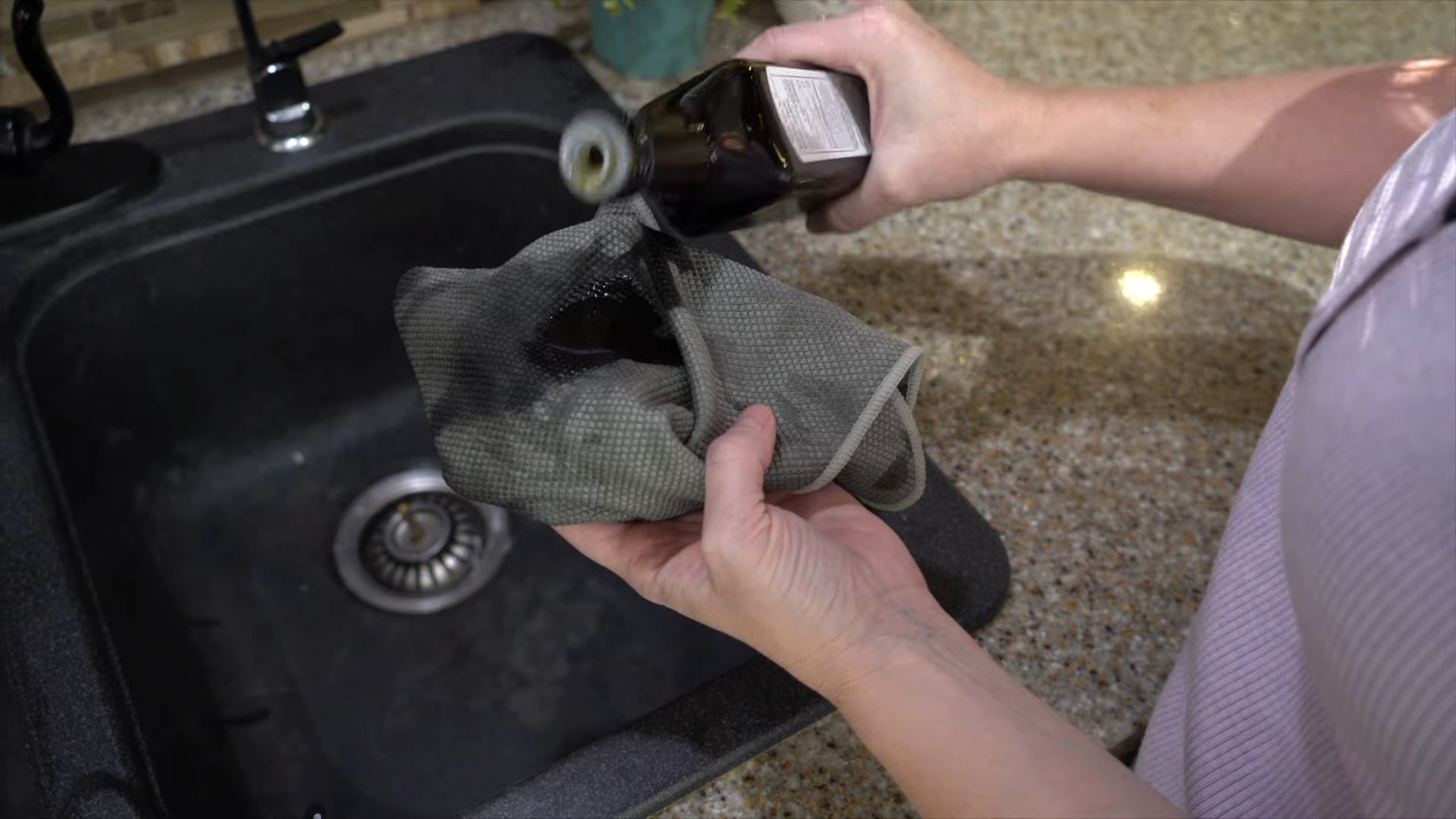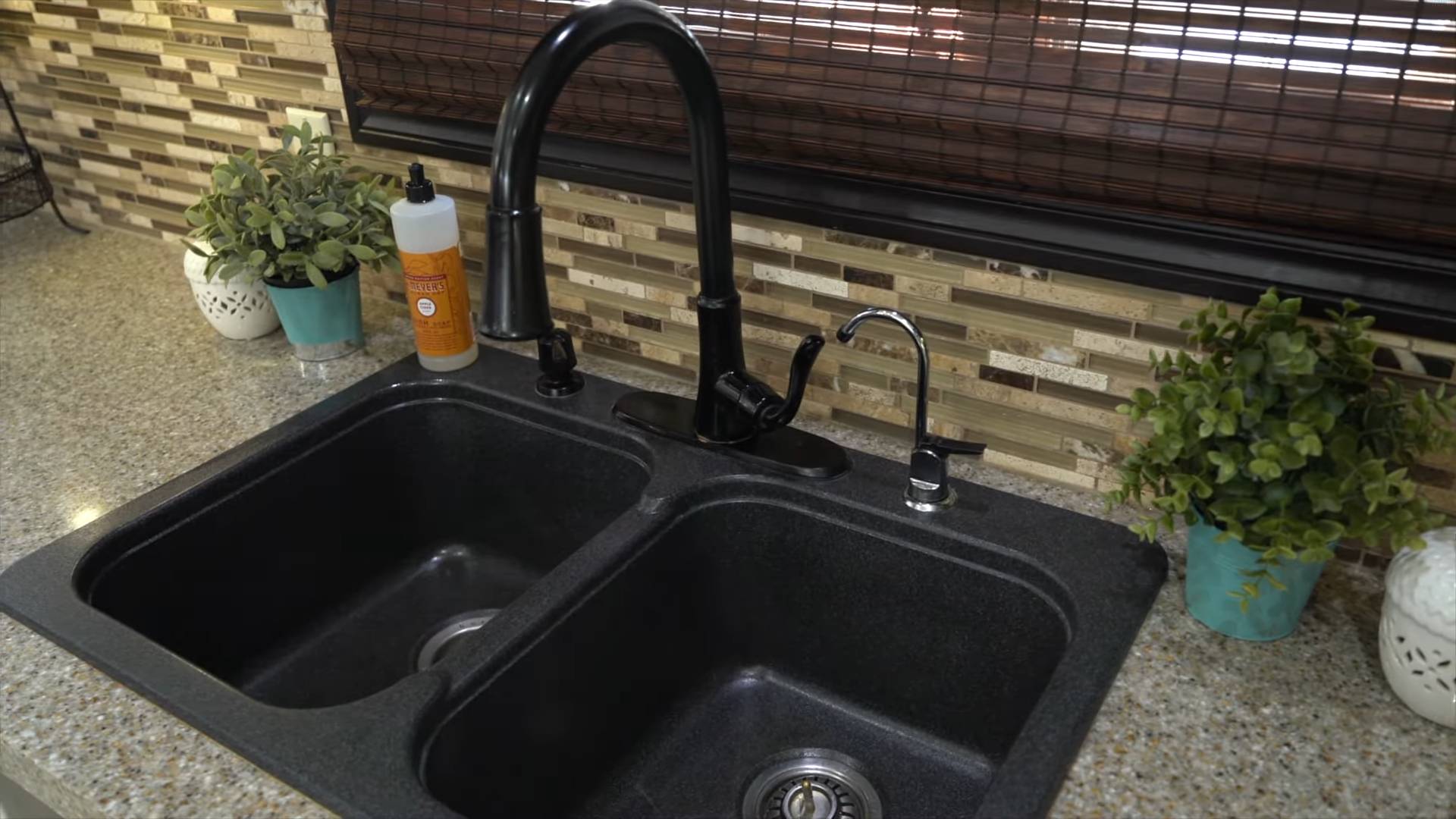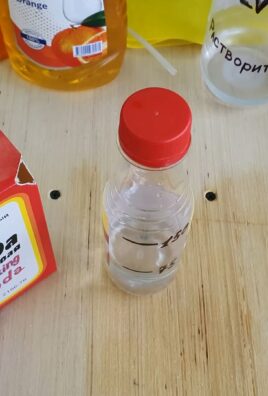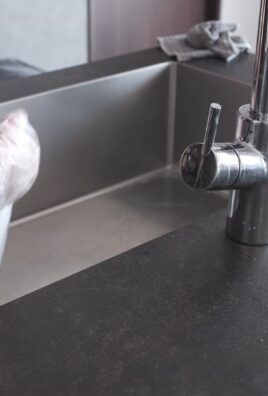Olive oil granite cleaner – sounds too good to be true, right? I thought so too, until I stumbled upon this surprisingly effective DIY solution. Forget those expensive, chemical-laden cleaners that promise sparkling granite but often leave a dull residue. I’m going to show you how to achieve a natural, beautiful shine with ingredients you probably already have in your kitchen!
Granite, a symbol of luxury and durability, has been a prized building material for centuries. From the ancient Egyptians using it for pyramids to modern homeowners choosing it for countertops, granite’s timeless appeal is undeniable. However, maintaining its luster can be a challenge. Harsh chemicals can damage the sealant, leaving your granite vulnerable to stains and etching. That’s where this simple, yet powerful, olive oil granite cleaner comes in.
Let’s face it, nobody wants to spend hours scrubbing countertops, especially when there’s a risk of damaging them. This DIY trick not only saves you money but also provides a safer, more eco-friendly way to keep your granite surfaces looking their best. Plus, the subtle, natural shine achieved with olive oil is far more appealing than the artificial gloss of many commercial cleaners. So, ditch the chemicals and let’s get started on creating your own amazing granite cleaner!

DIY Olive Oil Granite Cleaner and Polisher: Revive Your Countertops!
Hey there, fellow DIY enthusiasts! Are your granite countertops looking a little dull? Don’t rush out to buy expensive cleaners filled with harsh chemicals. I’m going to show you a super simple, all-natural way to clean and polish your granite using something you probably already have in your kitchen: olive oil! Yes, you read that right. Olive oil isn’t just for cooking; it’s a fantastic granite rejuvenator. This method is gentle, effective, and leaves your granite sparkling. Let’s get started!
What You’ll Need
Before we dive in, let’s gather our supplies. This is a pretty minimal list, which is one of the things I love about this DIY project.
* Spray Bottle: A clean, empty spray bottle is essential for even application.
* Microfiber Cloths: You’ll need at least two – one for cleaning and one for polishing. Microfiber is key because it won’t scratch the granite.
* Warm Water: Plain old warm water is the base of our cleaner.
* Dish Soap (Optional): A tiny amount of mild dish soap can help with greasy spots. I’m talking a drop or two, max!
* Olive Oil: Extra virgin olive oil is my go-to, but any olive oil will work.
* Rubbing Alcohol (Optional): For extra cleaning power and streak prevention, a little rubbing alcohol can be added.
* Essential Oil (Optional): A few drops of your favorite essential oil (like lemon, lavender, or orange) can add a pleasant scent.
Mixing Your Granite Cleaning Solution
This is where the magic begins! We’re going to create a simple yet effective cleaning solution. I’ll give you a couple of variations, depending on your needs.
Basic Olive Oil Granite Cleaner
This is the simplest version, perfect for regular cleaning and polishing.
1. Combine Ingredients: In your spray bottle, mix 1 cup of warm water with 1 tablespoon of olive oil.
2. Shake Well: Secure the lid and shake the bottle vigorously to combine the water and oil. Remember, oil and water don’t naturally mix, so shaking is crucial.
3. Test on a Hidden Area: Before spraying your entire countertop, test the solution on a small, inconspicuous area to ensure it doesn’t react negatively with your granite. This is always a good practice with any new cleaner.
Enhanced Olive Oil Granite Cleaner (For Greasier Surfaces)
If your countertops have some stubborn grease or grime, this version will give you a little extra cleaning power.
1. Combine Ingredients: In your spray bottle, mix 1 cup of warm water, 1 tablespoon of olive oil, and 1-2 drops of mild dish soap.
2. Add Rubbing Alcohol (Optional): For even more cleaning power and to help prevent streaks, add 1 tablespoon of rubbing alcohol.
3. Add Essential Oil (Optional): If you want a pleasant scent, add 5-10 drops of your favorite essential oil.
4. Shake Well: Secure the lid and shake the bottle thoroughly to combine all the ingredients.
5. Test on a Hidden Area: As always, test the solution on a small, hidden area before applying it to the entire countertop.
Cleaning and Polishing Your Granite Countertops
Now for the fun part – making your granite shine!
1. Clear the Countertops: Remove everything from your countertops – appliances, decorations, etc. This will give you a clear surface to work with.
2. Spray the Solution: Lightly spray the cleaning solution onto your granite countertops. Don’t saturate the surface; a light mist is all you need.
3. Wipe with a Damp Microfiber Cloth: Using a clean, damp microfiber cloth, wipe down the entire surface of your countertops. Apply gentle pressure to remove any dirt, grime, or spills.
4. Dry with a Clean, Dry Microfiber Cloth: Now, grab a clean, dry microfiber cloth and buff the countertops in a circular motion. This will remove any excess moisture and start to bring out the shine.
5. Polish with Olive Oil (Optional): For an extra boost of shine, you can apply a tiny amount of olive oil directly to a clean microfiber cloth. Buff the countertops in a circular motion until they gleam. Be careful not to use too much oil, as this can leave a greasy residue.
6. Repeat if Necessary: If your countertops are particularly dirty, you may need to repeat the cleaning and polishing process.
7. Admire Your Sparkling Granite: Step back and admire your beautifully clean and polished granite countertops!
Troubleshooting and Tips
Even with a simple DIY project like this, you might encounter a few hiccups. Here are some tips to help you achieve the best results.
* Streaks: If you’re experiencing streaks, it could be due to using too much olive oil or not buffing the countertops thoroughly enough. Try using less olive oil and buffing with a clean, dry microfiber cloth until the streaks disappear. Adding rubbing alcohol to your cleaning solution can also help prevent streaks.
* Greasy Residue: If your countertops feel greasy after cleaning, you’ve likely used too much olive oil. Wipe the countertops down with a clean, damp microfiber cloth and then buff with a dry cloth.
* Dull Spots: If you notice any dull spots, try applying a small amount of olive oil directly to the area and buffing vigorously with a clean microfiber cloth.
* Hard Water Stains: For hard water stains, you can try using a mixture of equal parts white vinegar and water. Spray the solution onto the stains, let it sit for a few minutes, and then wipe clean with a damp microfiber cloth. Be sure to test this solution on a hidden area first, as vinegar can etch some types of granite.
* Regular Cleaning: To keep your granite countertops looking their best, clean them regularly with the olive oil solution. I recommend cleaning them at least once a week, or more often if needed.
* Avoid Abrasive Cleaners: Never use abrasive cleaners, scouring pads, or harsh chemicals on your granite countertops, as these can scratch and damage the surface.
* Blot Spills Immediately: Wipe up spills as soon as they happen to prevent staining.
* Use Cutting Boards: Always use cutting boards when preparing food to protect your granite countertops from scratches and stains.
* Use Coasters: Use coasters under drinks to prevent water rings and stains.
Why This Works: The Science Behind the Shine
You might be wondering why olive oil works so well as a granite cleaner and polisher. Here’s a little bit of the science behind it:
* Cleaning Action: The water in the solution helps to dissolve dirt and grime, while the dish soap (if used) helps to break down grease.
* Polishing Action: Olive oil is a natural oil that helps to moisturize and protect the granite surface. It also fills in tiny scratches and imperfections, which helps to reflect light and create a shiny appearance.
* Protective Barrier: The olive oil creates a thin, protective barrier on the granite surface, which helps to prevent future stains and damage.
Other Uses for Your DIY Granite Cleaner
This cleaning solution isn’t just for granite countertops! You can also use it to clean and polish other surfaces, such as:
* Marble Countertops: This solution is gentle enough to use on marble, but always test on a hidden area first.
* Quartz Countertops: It works great on quartz surfaces as well.
* Stainless Steel Appliances: You can use it to clean and polish your stainless steel appliances, leaving them streak-free and shiny.
* Wood Furniture: A small amount of olive oil can help to moisturize and protect wood furniture.
Final Thoughts
I hope you found this DIY olive oil granite cleaner and polisher helpful! It’s a simple, affordable, and effective way to keep your granite countertops looking their best. Plus, it’s a great way to reduce your reliance on harsh chemicals. Give it a try, and let me know what you think! Happy cleaning!

Conclusion
So, there you have it! This simple, yet incredibly effective, DIY olive oil granite cleaner is a game-changer for anyone looking to maintain the beauty and luster of their granite countertops without resorting to harsh chemicals or expensive commercial products. We’ve shown you how easy it is to create a natural, streak-free shine using ingredients you likely already have in your pantry.
Why is this a must-try? Because it’s not just about cleaning; it’s about caring for your granite. The olive oil acts as a gentle sealant, helping to prevent stains and water damage, while the other ingredients work to lift away dirt and grime. This method is cost-effective, environmentally friendly, and, most importantly, it works! You’ll be amazed at the difference it makes in the appearance of your granite surfaces.
Looking to personalize your cleaning solution? Consider these variations:
* **Lemon Boost:** Add a few drops of lemon essential oil for an extra burst of freshness and a slight antibacterial boost. Be cautious, though, as too much lemon juice can be acidic.
* **Vinegar Power:** For tougher stains, you can add a very small amount of white vinegar (no more than a teaspoon per cup of water). Always test in an inconspicuous area first to ensure it doesn’t dull the granite.
* **Scented Delight:** Experiment with other essential oils like lavender, eucalyptus, or tea tree oil for a pleasant aroma.
We are confident that once you try this DIY olive oil granite cleaner, you’ll never go back to store-bought alternatives. It’s a simple, effective, and natural way to keep your granite countertops looking their best.
Don’t just take our word for it – give it a try! We’re eager to hear about your experiences. Share your results, tips, and variations in the comments below. Let’s build a community of granite-loving DIYers! We encourage you to share this recipe with your friends and family who are looking for a natural and effective way to clean their granite countertops. Your feedback is invaluable, and we can’t wait to see how this DIY trick transforms your cleaning routine.
Frequently Asked Questions (FAQs)
Is olive oil safe for granite?
Yes, when used in the correct proportions, olive oil is safe and even beneficial for granite. It acts as a gentle sealant, helping to protect the stone from stains and water damage. The key is to use it sparingly and ensure you buff the surface thoroughly to remove any excess oil. Using too much olive oil can leave a greasy residue, which is why the recipe calls for a small amount diluted with water and other cleaning agents.
Can I use any type of olive oil?
Extra virgin olive oil is generally recommended for this DIY cleaner. It’s a higher quality oil with fewer impurities, which can contribute to a better shine. However, you can use regular olive oil if that’s what you have on hand. Avoid using flavored olive oils, as they may leave a residue or scent that you don’t want on your countertops.
How often should I use this DIY granite cleaner?
You can use this cleaner as often as you would use any other granite cleaner. For regular maintenance, cleaning once or twice a week is usually sufficient. If you have spills or stains, clean them up immediately with this solution to prevent them from setting.
Will this cleaner remove tough stains?
This cleaner is effective for removing everyday dirt, grime, and light stains. For tougher stains, you may need to pre-treat the area with a paste of baking soda and water before using the olive oil granite cleaner. Always test any cleaning solution in an inconspicuous area first to ensure it doesn’t damage the granite.
What if I don’t have essential oils?
Essential oils are optional in this recipe. They add a pleasant scent and can provide additional cleaning benefits, but they are not essential for the cleaner to work. If you don’t have essential oils, you can simply omit them. The olive oil, water, and dish soap will still effectively clean and shine your granite countertops.
Can I use this cleaner on other types of stone surfaces?
While this cleaner is specifically formulated for granite, it may also be suitable for other types of stone surfaces, such as marble or quartz. However, it’s crucial to test the cleaner in an inconspicuous area first to ensure it doesn’t damage the surface. Marble, in particular, is more porous and sensitive to acidic cleaners, so use caution.
How do I prevent streaks when using this cleaner?
To prevent streaks, make sure you are using a clean, microfiber cloth. After applying the cleaner, buff the surface thoroughly to remove any excess moisture or oil. If you still see streaks, try using a dry microfiber cloth to buff the surface again. Avoid using too much cleaner, as this can also contribute to streaks.
What kind of dish soap should I use?
A mild, pH-neutral dish soap is recommended for this cleaner. Avoid using dish soaps that contain harsh chemicals, abrasives, or strong fragrances, as these can damage the granite. A clear, unscented dish soap is usually the best option.
How should I store the leftover cleaner?
Store the leftover cleaner in a clean, airtight spray bottle. Label the bottle clearly with the contents and date. The cleaner should be stored in a cool, dark place away from direct sunlight. It’s best to use the cleaner within a few weeks, as the ingredients may separate over time.
My granite looks dull after using the cleaner. What did I do wrong?
If your granite looks dull after using the cleaner, it’s likely that you used too much olive oil or didn’t buff the surface thoroughly enough. Try cleaning the surface again with a solution of water and a small amount of dish soap, then buff it dry with a clean microfiber cloth. In the future, use less olive oil and make sure to buff the surface thoroughly after cleaning.




Leave a Comment